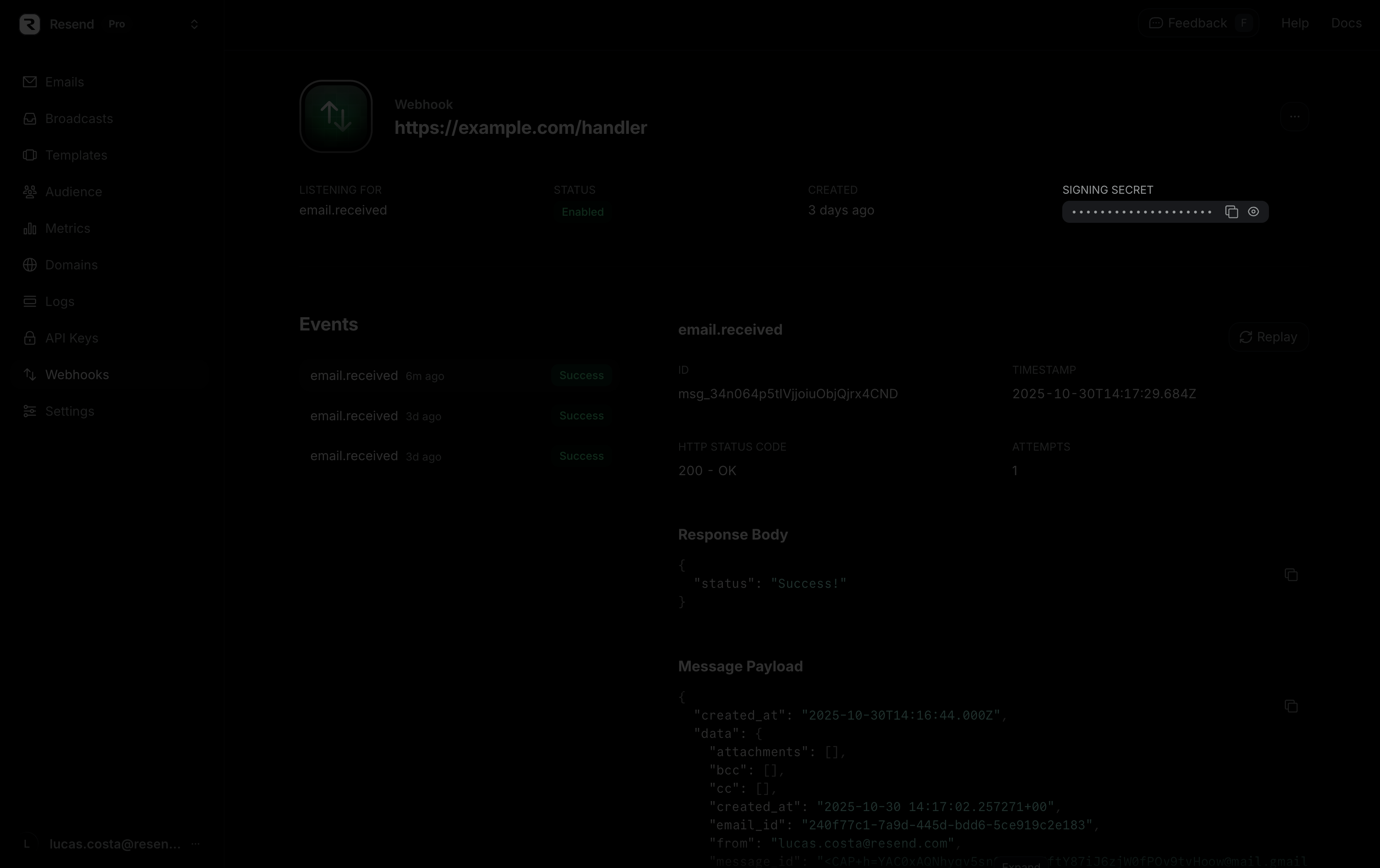Webhook signing secrets are used to validate the payload data sent to your application from Resend. You can find the signing secret on the webhook details page.
 Calls to create, retrieve, or list webhooks will also return the signing secret in the response body.
To verify the webhook request, you can use the Resend SDK, as in the example below.
Calls to create, retrieve, or list webhooks will also return the signing secret in the response body.
To verify the webhook request, you can use the Resend SDK, as in the example below.
Make sure that you’re using the raw request body when verifying webhooks. The
cryptographic signature is sensitive to even the slightest change. Some
frameworks parse the request as JSON and then stringify it, and this will also
break the signature verification.
export async function POST(req: NextRequest) {
try {
const payload = await req.text();
// Throws an error if the webhook is invalid
// Otherwise, returns the parsed payload object
const result = resend.webhooks.verify({
payload,
headers: {
id: req.headers['svix-id'],
timestamp: req.headers['svix-timestamp'],
signature: req.headers['svix-signature'],
},
webhookSecret: process.env.RESEND_WEBHOOK_SECRET,
});
// Handle the result after validating it
} catch {
return new NextResponse('Invalid webhook', { status: 400 });
}
}
import { Webhook } from 'svix';
const secret = process.env.WEBHOOK_SECRET;
// These were all sent from the server
const headers = {
'svix-id': 'msg_p5jXN8AQM9LWM0D4loKWxJek',
'svix-timestamp': '1614265330',
'svix-signature': 'v1,g0hM9SsE+OTPJTGt/tmIKtSyZlE3uFJELVlNIOLJ1OE=',
};
const payload = '{"test": 2432232314}';
const wh = new Webhook(secret);
// Throws on error, returns the verified content on success
wh.verify(payload, headers);
Why should I verify webhooks?
Webhooks are vulnerable because attackers can send fake HTTP POST requests to endpoints, pretending to be legitimate services. This can lead to security risks or operational issues.
To mitigate this, each webhook and its metadata are signed with a unique key specific to the endpoint. This signature helps verify the source of the webhook, allowing only authenticated webhooks to be processed.
Another security concern is replay attacks, where intercepted valid payloads, complete with their signatures, are resent to endpoints. These payloads would pass the signature verification and be executed, posing a potential security threat. 